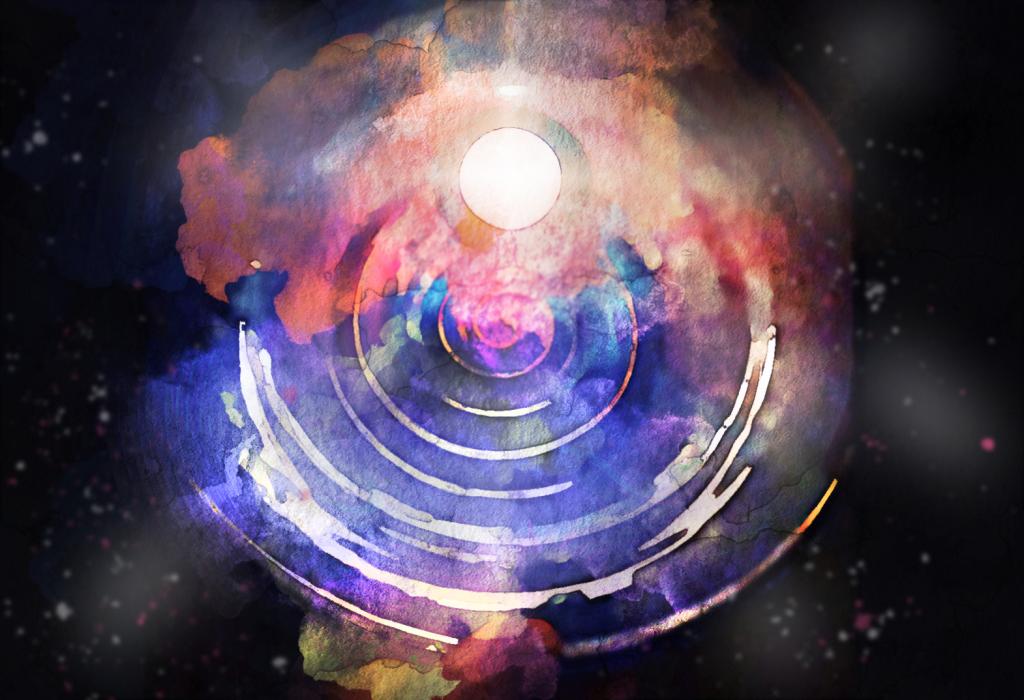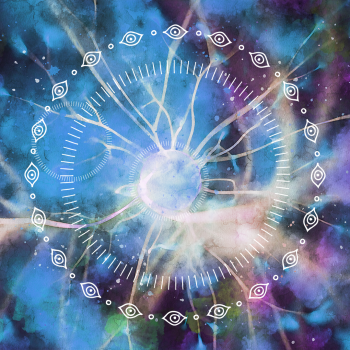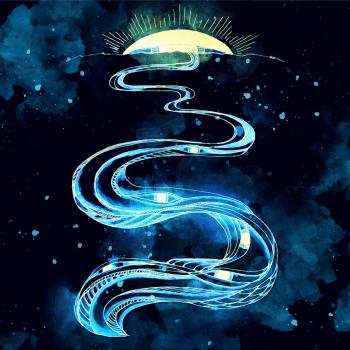Animism is both profoundly simple and incredibly powerful as a philosophy. It is as ancient as words and reborn constantly. It is the human understanding that “things” are actually “beings”. Animism radically moves away from the Christian doctrine that states humans are the only beings who are people. I know that’s an awkward sentence to say, and I wrote it anyway. I mean really it’s kind of weird. We’re all just so used to this pervasive idea that humans are special. Godlike. Beings. Not-animals.
I am an animal. A mammal, not that much different from a squirrel or a cat. I am made of recycled dirt. So are you.
The History of Separation and Loss of Peoplehood
Modern colonial culture, which emerged from the European Renaissance, and before that Christian theocracy, clearly dictates divides. Human is separate from animal. Body is separate from soul. Animate is separate from inanimate. In some ways, I understand why it was so thrilling. This careful examination and categorization of the physical world has lead to a lot of really cool science. Scientific thought is seen as “rational” versus the irrationality of religion. The thing is, real scientists know that all Theories are… theoretical.
Science is a way of attempting to understand the universe. Scientific knowledge is constantly changing as new data comes in, and yet our philosophies and beliefs change even more slowly and are rooted far more in old assumptions than we want to admit. We set Science as the opposite of Religion. It is truth versus belief. That is incorrect. It’s all just the mess that humans have made up to understand what the heck is going on. We humans need to do a better job of considering how those systems set us up for success or failure as a species.
In an attempt to move away from Christian theocracy many Europeans moved toward the enlightened viewpoint that science and logic were the only valid way of looking at the world. This is really important for all of us English-speaking Americans as well as everyone participating in modern colonial culture because our culture and language come from those roots.
And so we look back to ancient lore. As pagans, we embrace nature, spirits, and gods. We study languages and cultures that came before us. Some of us get really obsessed with archeology. We try and peel back the layers of culture to find out what the people who came before us believed and why they knew it. Polytheism, spirits, ancestors, and a world filled with non-human consciousness emerges from that study. It is an emotive, experiential reality that does not seem to blend well with modern science. Even pagans only briefly touch on animism. Mostly the focus is on polytheism, on gods. But what are gods but animistic interactions?
When I studied anthropology and sociology in college, Animism was labeled as “basic”, “primitive”, and “uncultured”. It was what foolish, unscientific, indigenous people did. Rational modern scientific people might cave to being something as normal as Christian, but they would never be animists. Ugh. Somehow people have decided animism is outdated, unuseful, and unimportant.
I’m tired of throwing the baby out with the bathwater.
I want my animism back, please.
What is the Definition of Animism?
According to Mirriam-Webster Animism is:
1: a doctrine that the vital principle of organic development is immaterial spirit
2: attribution of conscious life to objects in and phenomena of nature or to inanimate objects
3: belief in the existence of spirits separable from bodies
So basically the modern understanding of animism is that both organic and inanimate objects have spirit and consciousness. I personally am fond of telling people, “All your stuff has a soul.” then pointing to some really ordinary object like a toilet or a table and greeting it. I’ve been doing it for decades. It’s satisfying for me to point out that office furniture has a soul. YMMV.

Recently Sidney Eileen wrote about animism as a natural human impulse, and gave this definition:
“Animism means understanding that everything has a soul, from you and me to every animal, plant, object, and place.”
The word animism comes from the Latin anima meaning breath but also meaning soul, and related to the Greek word psyche. To be animated is to be instilled with life. It is to be ensouled. To live in an animistic world is to be in a world that is instilled with life, soul, and spirit. It is to be part of a breathing universe.
Animism is the practice of existing in a world where physical matter is alive and has personhood. Animism as a worldview creates an ontology of peoplehood. It makes us all people.
Why Animism is Important
When we talk about spirit and soul, we are talking about the thing that makes someone a person versus not-a-person. This is a fundamental argument that has had real consequences throughout history. Slaves were not-people. Women were not-people. The Catholic church had vast debates about personhood through the centuries. Throughout the world there have been classification systems for who counted as a person, and who did not. Those who did not count as people didn’t have to be respected, or listened to. Their lives were tools. Their wellbeing, agency, creativity, and choices were irrelevant.
This ideology is still alive and well in our capitalistic society. We live in a world where personhood can be taken away so easily. Animism stretches outward and expands personhood. The arms of animism encircle not only humans but non-humans and non-living beings. I want to live in that world. Rather than denigrate animism as “basic” or “primitive” I embrace it.
Science and religion are both about observing material reality and understanding how to live within it. Animism is about honoring material reality as being filled with people. It’s about respect.
Functional Animism
The world shifts in fundamental ways when you start to view it through the lens of personhood. What happens when a tree has agency, or a river has opinions? I often find that human people become overwhelmed at these thoughts and start to insist that they will surely perish if they have to respect every blade of grass and hamburger they just ate. That’s the thing though. Grass doesn’t want or need what a human needs. Grass just needs to grow. It doesn’t mind being walked on, kinda likes it even. But it does mean that we as humans need to come from a more humble and compassionate place. We have to stop for a moment and consider,
“What does grass want?”
“What does the cow that eats the grass want?”
“What does the worker who made my hamburger want?”
It doesn’t mean you don’t walk on grass and never eat meat. It does mean that respect and care for your fellow people is important.
Try walking a day in your life with respect for all beings. How would you treat your desk chair with respect? How would you treat the guy at the drive-through window with respect? How would you treat yourself with respect?
It’s easier said than done, but like many spiritual practices, I believe that the effort is fundamentally transformative, even when we as flawed humans fail at the process. I rest in the knowledge that I am one person of one species among many, having evolved over millennia. I am small and imperfect, just like all the other people. Me and the rocks and the trees are all doing our best.
If you like my work and would like to support my addiction to writing about animism, sustainability and polymodal thinking, please consider becoming a patron. You can get access to art, coloring pages, spells, moon workings and more!
















